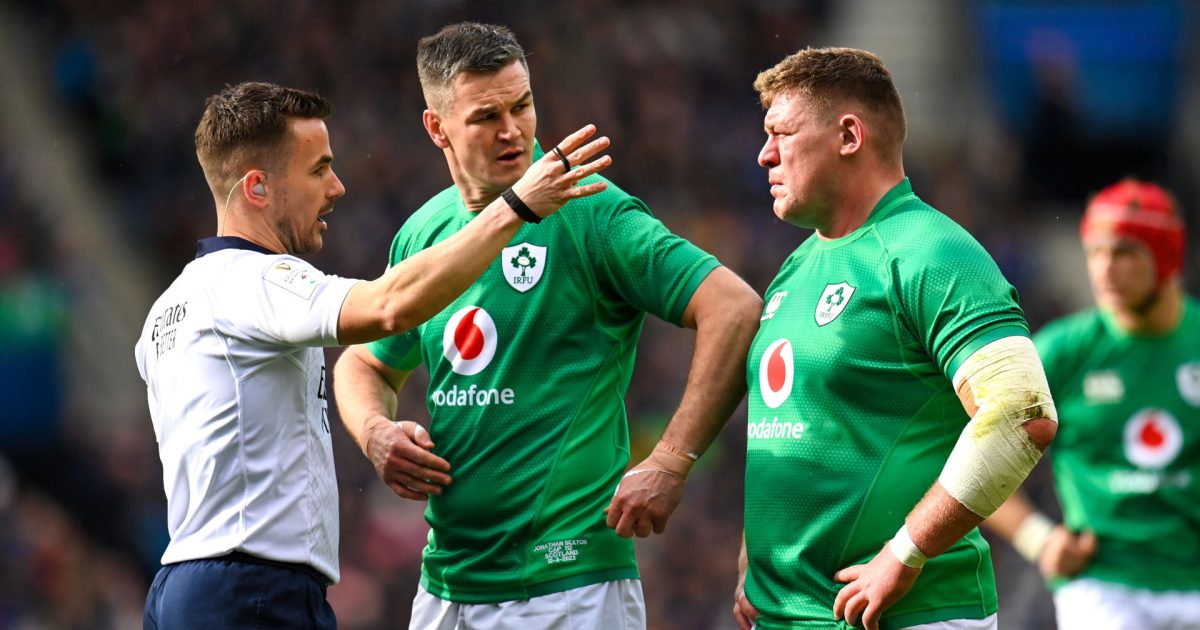Ref Watch: Ireland's disallowed try off a Scottish infringement

Ireland had an early try disallowed after they appeared to have legally stolen a Scotland throw and sent their forwards driving over – but was this call correct?
After seemingly being alerted by a message from his assistants on the sidelines, referee Luke Pearce consulted with the closest touch judge then disallowed the score.
“We have a potential issue with the ball used,” he advised Johnny Sexton before going to speak to his English colleague Christophe Ridley.
They quickly concluded, correctly, that Scotland had thrown in with a ball that hooker George Turner gathered from a ball boy.
The ball which originally went into touch was at the time in the hands of Stuart Hogg, but in their haste to beat Ireland to the punch the hosts instead used a readily-available alternative.
However, with their timing slightly awry Ireland No.8 Caelan Doris stole the ball and a couple of phases later the visitors sent hooker Dan Sheehan over from close range.
The bemused TV commentators quickly checked with former World Cup final referee Nigel Owens who the BBC are using as a pundit.
Owens advised that according to Law 18 a quick throw-in cannot be taken with a spare ball – it has to be taken with the ball that went into touch.
However, was this a quick throw as defined by law or was it a formed lineout quickly taken?
Because the ball was thrown in at the line of touch and to a situation which saw more than two players from each side to present there is certainly a case that this was a formed lineout.
There is nothing in law which dictates how quickly the ball must be thrown into a formed lineout – in fact players are discouraged from dwelling too long by the sanction of a free kick for delaying.
In short Scotland – who chose to throw in quickly – were extremely fortunate that the try was chalked off.




















































Scotland may well have been fortunate. However, if you take the view that the lineout was formed, then Doris was clearly offside. He was not in the lineout (he couldn't have been because he was more than 15 metres from the touchline) and, in addition, he was not 10 metres back either.
Fair comment. So Pearce took the more sensible approach, made Scotland throw again with the correct ball, and didn’t penalise Ireland for offside since Pearce considered that the first ‘offence’ was using the wrong ball.